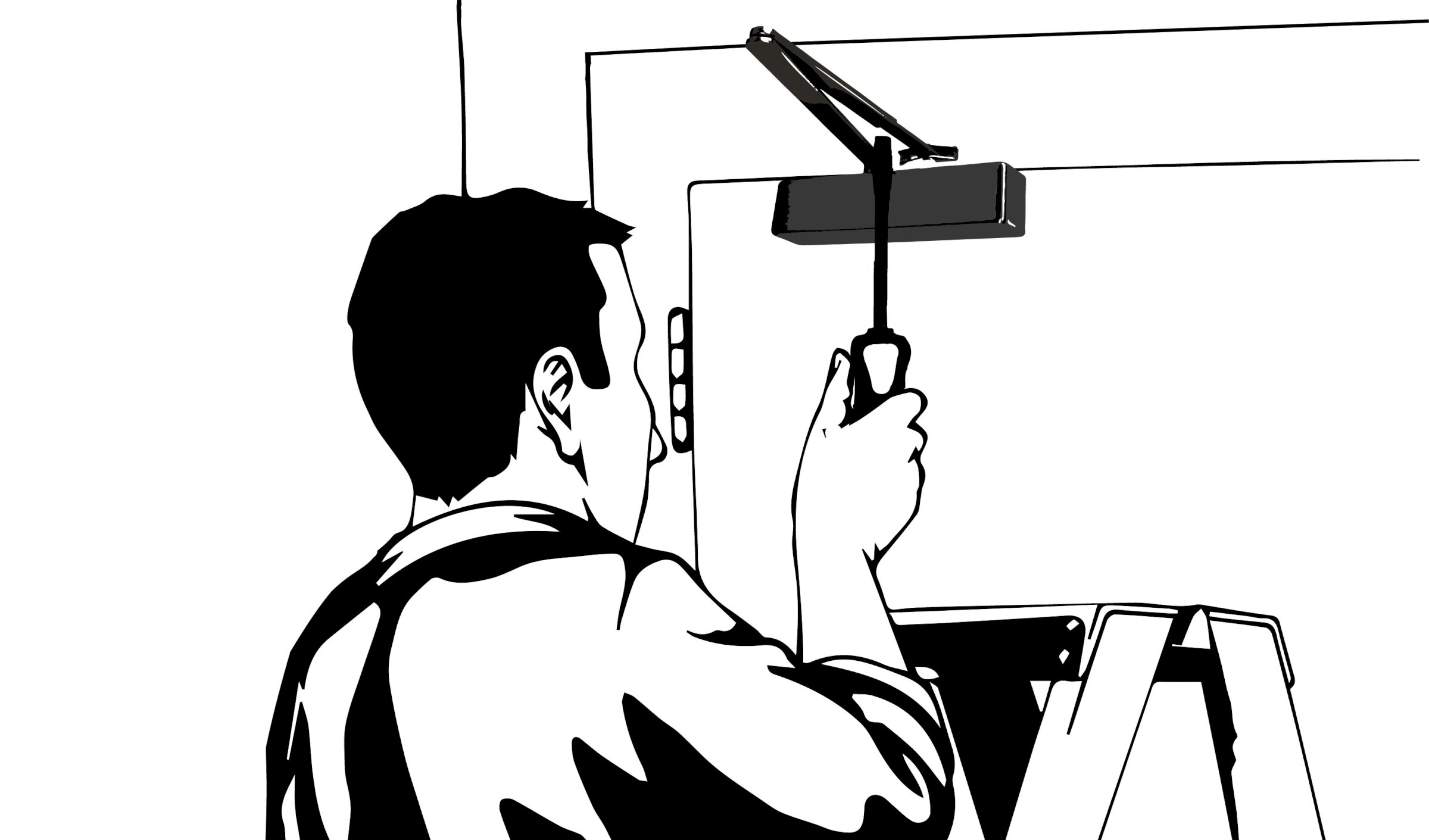• clicking due to the pinion bolt in the top of the drive shaft starting to work loose
• dipping of the closer arm which may catch the top of the door (which could cause the door not to open)
Things to look out forBefore we go any further, we’d like to emphasise that this piece is about keeping your closer in good condition rather than fixing your door. If a door is squeaking or not closing properly, the closer often gets the blame, but most of the time we find that this isn’t the case. For instance, if your door is squeaking, we’d advise checking the hinges before anything else – a careful application of a spray lubricant could be all that is required. For more tips like this read our troubleshooting guide, ‘
Why does the closer always get the blame?’.What lubrication should I apply?The moving parts of a closer should not be ‘oiled’; they should be lithium greased. Lithium grease is thicker than standard oil – this makes it easier to apply in small quantities to specific areas, reducing the risk of spillage on carpets, and means it stays in place to act as a long-term protective coating.
Before applyingBefore applying lubrication, remove all dirt and dried grease dust to ensure that any abrasive matter isn’t embedded under new layers of lubrication, potentially wearing down moving parts, such as the shuttle on a slide arm closer. Use a non-corrosive cleaning agent for this – do not use bleach.
How to applyIt’s good practice to recommend/use something simple and easily accessible to apply grease, as it is messy and best applied in small amounts – no-one wants unsightly grease on newly painted woodwork. This seems obvious but we have visited many sites where grease has been hurriedly applied to doors and the result can really detract from the overall finish of a project. We recommend using a small screwdriver because this will apply just a small amount of grease to the specific moving parts and is easily cleaned afterwards.
My door closers seem to be working fine – why is lubrication important?Oiling is more about long term care of the closer rather than affecting its performance in the short term. Whilst a door closer may be operating perfectly well, lack of lubrication and constant grinding of dust will wear down the parts, shortening the lifetime of the closer – it will also make any warranty given with the product null and void. Any claims on a warranty need to be backed up with proper maintenance records.
What if oil is leaking out of a closer? Leaking of internal liquid oil is a separate issue to the lubrication of moving parts; it is a sign of an internal fault – this is almost unheard of with Rutland closers. If a door has suddenly started slamming, it is quite possible that the oil is leaking out of the closer, as the oil is what slows the closer down. It is an indication of a serious fault with the closer and the manufacturer’s tech team should be contacted immediately.
Key elements of closer maintenanceAnother important element to keep your closer functioning as it should is routine adjustment of the valves. Buildings, users of buildings, and air pressures within buildings do change, and the power/speed of opening and closing a door may need to be tweaked accordingly – a door closer is a clever piece of kit, but it is often not used to its full potential.
We recommend making regular checks and keeping maintenance records for all your closers. And needless to say, always read the Operation and Maintenance manual to ensure you are getting maximum value out of your door closer.
